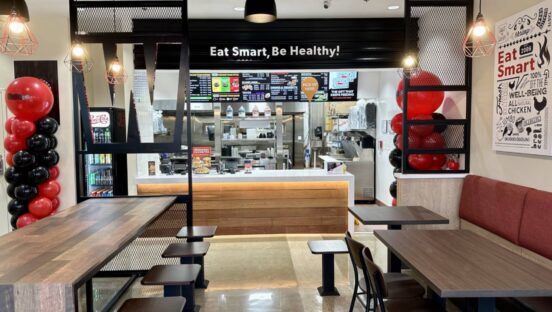U.S. Tim Hortons franchisees filed a lawsuit in federal court Thursday against parent company Restaurant Brands International (RBI), accusing it of price gouging and disguising the franchise system as a supply chain business.
The franchisees, using the name Great White North Franchisee Association-USA, Inc., seek declaratory and injunctive relief.
The lawsuit says RBI, also the parent company of Burger King and Popeyes, limited the source of goods to “sole suppliers” affiliated with RBI or unaffiliated but paying rebates to RBI, forcing franchises to purchase goods far above market value. The document further argues that RBI misused marketing fees paid by franchisees and stripped franchisees’ equity through convoluted contractual language.
READ MORE: Where Tim Hortons’ comeback plan begins
The franchisees note in the lawsuit that Tim Hortons was performing well in the U.S. prior to RBI acquiring the brand in 2014. The chain added 259 stores from 2011 to 2013, however 127 domestic stores closed in 2015, the first full year under RBI. From 2016 to 2018, the lawsuit states that Tim Hortons lost 31 stores. In 2019, several stores closed across Ohio, Minnesota, and Michigan. Same-store sales consistently declined in the same period. The lawsuit argues RBI “commenced its fraudulent strategy” to offset stagnant sales in the U.S. and Canada.
Despite the decline in sales, the lawsuit states Tim Hortons was able to turn profit at the expense of franchisees through a vertically integrated supply chain “in which it manufactures, warehouses, and distributes most of the food and restaurant supplies.”
The document points to multiple examples of when the Tim Hortons segment was driven by large increases in supply chain sales of products sold to franchisees. In many cases, the supply chain sales dwarfed the revenue brought in by franchisees. In Q4 2019, for instance, supply chain sales were $586 million compared to franchise and property revenue being $286 million.
“RBI, through its Tim Hortons brand and its affiliates, including TDL and THD, has
effectively become more of a supply chain company that earns the majority of its topline revenue from sales of marked-up product to franchisees and much less of a franchisor that traditionally provides support and guides its franchisees to profitability following a ‘system,’” the lawsuit states.
The lawsuit also accuses RBI and Tim Hortons of concealing the nature of its relationships with vendors to lock the franchisees into unfavorable agreements and “coerce them by tying
franchisees to vendor contracts which require their purchase of essential items sold to them well above market rate.”
According to the document, suppliers charge Tim Hortons franchisees $104.08 more per case of Applewood bacon than Wendy’s franchisees. Tim Hortons franchisees also pay $23.85 more for boxes of Diet Coke and $11.92 more for a case of 9-inch plastic straws.
“RBI, Tim Hortons, and its affiliates have been, at all material times, more focused
on their own profit and shareholders’ stock value than providing a productive and supportive
franchise system to its franchisees,” the lawsuit states. “Upon information and belief, this scheme has been adopted to inflate RBI’s profitability and make it more attractive to potential investors.”
The news is the latest in a string of legal battles between Tim Hortons franchisees and RBI, including one lawsuit accusing RBI of mismanaging advertising funds and another alleging RBI was trying to intimidate franchisees and force them out of their stores.







